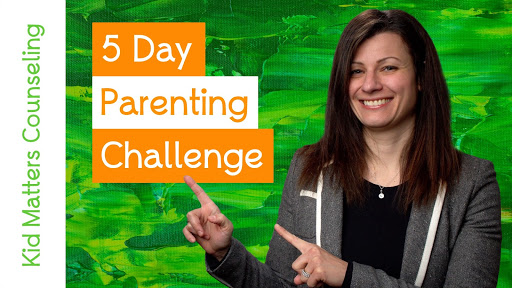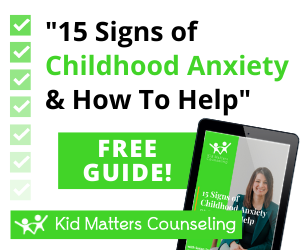If I asked you to name which apps are on your child’s phone right now, could you answer correctly? Do you even know? The total number of TikTok downloads has reached 5.8 billion, making it one of the most downloaded apps in 2024. As a parent it can seem overwhelming and even impossible to stay on top of the constant information, media, trends, and noise that is specifically targeted at our children.
Luckily, parental controls and age restrictions help keep a lot of unsavory apps from reaching our children. But sometimes seemingly harmless apps (like Instagram & Snapchat) can slip through the cracks and cause problems for you child.
TikTok is such an app. TikTok is a music video based social media app that allows users to record themselves lip syncing to popular songs, add effects, and share them with other users (think snapchat with music).
According to Backlinko, TikTok is set to surpass 1.6 billion active users in 2025, making it the 4th most used app behind Facebook, YouTube, and Instagram.
TikTok is actually the second version of the app. The original app went by the name Musical.ly which was acquired by the Chinese company Bytedance in late 2017 and underwent a total rebranding. Musical.ly faced its own series of problems over its 3 year history. While the app is currently rated 16+, Musical.ly used to be rated 12+.
As this app has become increasingly popular we’ve been hearing from concerned parents wanting to know about this app.
So here are 5 Things Parents Need to Know about TikTok in 2025
1. Is TikTok Safe for Kids?
Privacy Setting Have Been Updated for Young Users
Previously, all TikTok accounts defaulted to a “public” setting no matter the age of the user, leaving your child open to DM’s and interactions from strangers. In its 2021 update, TikTok accounts for users aged 13-15 are now “private” by default. Also, videos created by users under 16 years of age are restricted by default for download unless the settings are changed or update.
According to TikTok, “with a private TikTok account, only someone who the user approves as a follower can view their videos.”
Suggestive Content Abounds
As with any social media platform, there is always suggestive content mixed into the bag. With TikTok being mostly based on music and video, profanity and suggestive clothing/dancing are the most obvious sources of adult content.
But the app also encourages some themes that are much more mature than their 16+ rating would suggest. With a quick hashtag search, your child will have access to mature content, as well as suggestive themes and challenges.
Because of the increase and promotion of inappropriate content, TikTok has been banned in several countries, including China (where the app originated), India, Bangladesh, and Pakistan.
States are also cracking down on TikTok. According to GritDaily, states including Alabama, Maryland, Montana, Nebraska, Oklahoma, South Carolina, South Dakota, Utah, and Texas have banned the app on government devices. And, there’s been a push for Apple and Google to raise the minimum age for users to at least 17.
2. What is the Age Limit for TikTok?
The minimum age for a TikTok user is 13 years old. While this is great news for younger users, it’s important to note that TikTok doesn’t use any age verification tools when new users sign up. That means, if your child signs up for a new account without your knowledge, they’ll have access to explicit and inappropriate content without restriction.
3. What are TikTok’s Parental Controls?
With a feature called “Family Pairing”, parents can link their child’s account to their own where they can control direct messages, set screen time limits, and turn on/off restricted content directly from their phone.
Parents will also receive a notification if any of the settings are changed or turned off from their child’s phone.
There’s also a “Digital Wellbeing” Setting
One of the more admirable functions in the app is the ability to turn on the ‘digital wellbeing’ setting. Once turned on, this setting will set time limits on app use, which can help your child moderate the time they spend on their phone. You can also find strategies for keeping your child’s screen time in check in this Kid Matters blog post.
This setting also allows a parent to put restrictions on their child’s account. This will block videos that have been flagged as inappropriate. An important point to remember however is that not all inappropriate material is flagged properly; things slip through the cracks.
4. Will TikTok Affect My Child’s Mental Health?
While TikTok is great for socializing and can provide a creative outlet for your child, it can also have some harmful effects. Like with any social media platform, posting videos and pictures regularly leaves your child open to negative reactions and harsh comments.
This can have a huge impact on your child’s self-esteem, body image, and confidence. In some instances, it can lead to depression, anxiety, and even eating disorders such as anorexia and bulimia. While those are extreme cases, young users and even influencers on the platform have expressed concerns over the negative comments they receive and how it affects their daily lives.
5. Does TikTok Collect User Data?
While this is nothing new and all social-media apps participate in this practice, it is worth reminding parents of. This is a quote directly from TikTok’s page on privacy-
“We share your data with our third-party service providers we rely on to help provide you with the Platform. These providers include cloud storage providers and other IT service providers. We also share your information with our business partners, advertisers, analytics and search engine providers…”
Before their most recent update, even when the app wasn’t being used, it was collecting info off of your phone clipboard. That meant if you or your child copy and pasted sensitive information such as passwords or private conversations, TikTok was noting and storing that information.
If you’re still concerned about whether TikTok may be storing your child’s information, make sure your phone’s security settings are up to date and you’re using the latest operating system.
For iPhone users, updating to iOS 18 or higher should fix the issue.
——
HEY PARENTS!
Be sure to check our our parent resources for Instagram, Snapchat, & YouTube.
Or, click here on all our articles on technology.
——
If you feel unsure of how to start a conversation on internet safety with your kids and where to start, check out another post I wrote on 5 Books Every Grade School Parent Should Know Regarding Internet Safety. Or, If you need additional resources to help you with internet safety or with how to help your kids navigate tricky things in the digital age give one of our therapists a call. We are here to help!
Remember to have ongoing open conversations with your kids about the content they’re consuming when on TikTok and encourage them to come to you when/if they’re seeing content that is harmful or inappropriate.
Stay safe in this digital world. Be creative. Don’t parent alone.

Susan Stutzman
Owner | Child Therapist | LCPC, RPT-S
Parenting is hard! But you don’t have to do it alone. I work with children and parents to resolve emotional conflict, cultivate healing, and nurture hope.
Kid Matters Counseling has trained therapists ready to help both kids and parents walk through the tough moments in life.
End the frustration & the confusion and let's work together! SCHEDULE APPOINTMENTNew Clients Call: (855) 586-1802
Current Clients: (855) 543-7687
Ask Us Anything!
We help anxious kids and frustrated parents. We serve Hinsdale & the Western Suburbs of Chicago.
Made with ♥︎ in Hinsdale, Illinois for Chicago
Built By Brand Your Practice.
Kid Matters Counseling, P.C. DISCLAIMER: This website and blog are for informational, educational and general discussion purposes only. It is understood that no guarantee or warranty arises from the information provided, discussed or commented upon in this website and blog nor does it constitute legal or other professional advice on any subject matter. Access to this website and blog is voluntary and at the sole risk of the user. If you think that you have a medical emergency (including clinical), call your doctor or 911 immediately. A licensed medical professional should be consulted for diagnosis and treatment of any and all medical conditions. While the information contained within this website and blog is periodically updated, no guarantee is given that the information provided is correct, complete, and/or up-to-date. See our complete Privacy Policy and Terms of Service.



